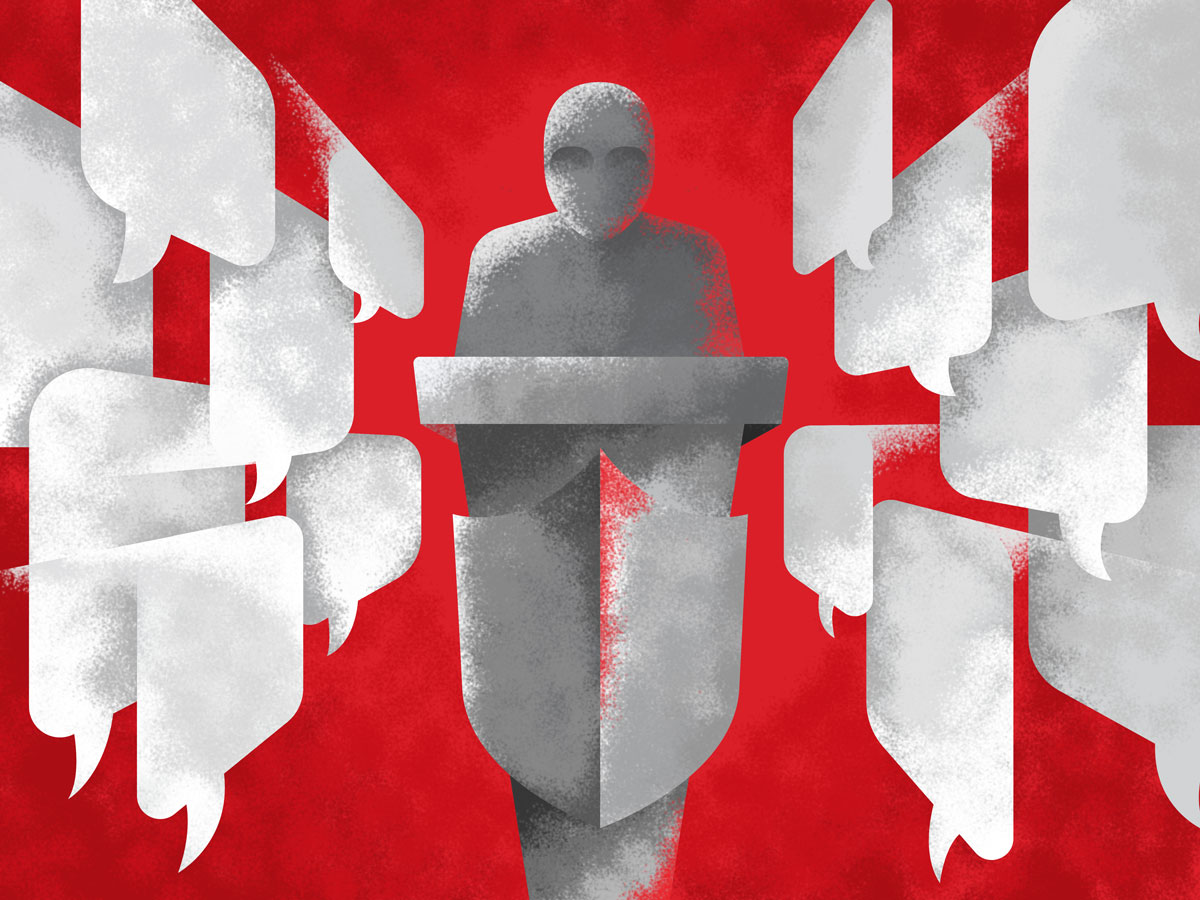Who does your customer trust? The sad truth is that it’s likely not your brand. Only 50 percent of Americans trust corporations to do what’s right, rating the reputations of CEOs and corporate leaders as “bad.”
This stat may not be that surprising given the sheer volume of viral videos and news stories showcasing the bad behavior and heartlessness of companies and their leaders. From airlines to ride-sharing to tech, it seems that brands are constantly on the defense while struggling to navigate crisis events in the era of social media and a 24-hour news cycle.
So, what can be done to win back the public’s trust? Although it’s easy to feel powerless, there’s plenty that marketers can do to bulletproof brands from a crisis event. It starts with rethinking your approach to reputation management.
1) A Trusted (and Visible) Spokesperson
If you have a basic crisis plan in place, chances are you’ve trained your CEO or company leader on how to handle tough media questions and deliver statements to the public. But put yourself in the shoes of your target—if they only see your brand representative when things go wrong, what are the chances that they’ll feel comfortable believing what leadership has to say?
This is why it’s imperative for your leaders and spokespeople to build a relationship with your target audience long before a difficult situation arises to establish credibility before it’s needed. Your spokesperson should be doing interviews on positive topics throughout the year, e.g., showing and telling how your company cares for customers and the community (in an authentic way), appearing in engaging videos on your social platforms and anything else that gets them in front of your customers to deepen trust and likeability.
2) A Cause Marketing Campaign
Do you know which brands don’t have trust issues? Those that build goodwill by doing good. Be it big or small, showing you’re dedicated to a cause helps build goodwill and a bank of trust that you can tap into if and when your brand reputation takes a hit.
Customers are passionate about brands supporting and linking arms with causes that align with the brand identity and that they (the customers) are passionate about. In fact, 33 percent of consumers support brands that do social or environmental good. Furthermore, consumers tend to buy more from these companies—with millennials being more likely to support them and employees being more likely to stay with them.
There are countless deserving organizations to support, but a successful cause marketing program requires more than just writing a check. Choosing a cause that aligns with your brand mission and resonates with your customers is key to success. When your brand’s involvement feels authentic, it has the potential to make an impact with your target that will be remembered and supported.
3) A Nurtured Social Community
Yes, social media gives your customers a megaphone to air their grievances—and an opportunity to share where you can grow in terms of your products and services. It’s an amazing listening tool. Your social channels also serve as an early warning system—alerting you to common complaints as well as situations that have the potential to become a mass media crisis.
Beyond listening, social provides a place to have an ongoing dialog with your customers and build lasting relationships with your target. If you consistently address feedback, provide solutions and inspire on social, your fans and followers are more likely to become brand advocates who step up for you during a difficult time. Best of all, you can potentially catch a crisis while it’s simmering to keep it from boiling over.
4) 360° Crisis Monitoring
Nurturing relationships with customers and addressing their concerns on your social platforms is invaluable, but don’t limit your listening to your own brand’s pages. Are there competitors or other industry partners, vendors or associations facing a crisis event? You could get roped in by association, so maintaining a full view of what is happening in your industry is imperative.
Outside of social media, make time to continually track industry and association news and events. If a crisis happens to a brand in your space, consider how they handled it and what you would have done the same or differently. Use every news event as an occasion to sharpen and polish your crisis plan—and proactively sleuth out whether someone else’s concerns might be your own.
5) Target-Centric Vulnerability Analysis
You can’t be prepared for a crisis event if you don’t know what you’re looking for. Right now, you could probably name a dozen scenarios with the potential to harm your brand’s reputation. But have you considered those issues from the perspective of your target? By understanding which crisis events have the highest likelihood of occurring and which will have the biggest impact on your brand, you can prioritize and plan for the most damaging scenarios.
For example, if you’re a natural foods company, your target audience is sensitive to the ingredients in their meals, and a recall could have a devastating impact on your business. It’s in your best interest to prepare messaging, crisis protocols and content to address that specific issue when cooler heads prevail.
While many organizations wait until they have an issue to get in front of the public, savvy marketers are building goodwill consistently and long before a potential crisis occurs. They’re listening to and engaging with their customers on a regular basis, keeping an eye on the ups and downs of their competitors and their industry and, per the wisdom of President John F. Kennedy, taking time to repair the roof while the sun is shining.
Has your brand’s roof been crisis-proofed? Do you have the safeguards in place today to help you avoid being in the news tomorrow? Not sure?
Send Ted an email (tjun@hiebing.com) to start chatting about a crisis plan checkup.
